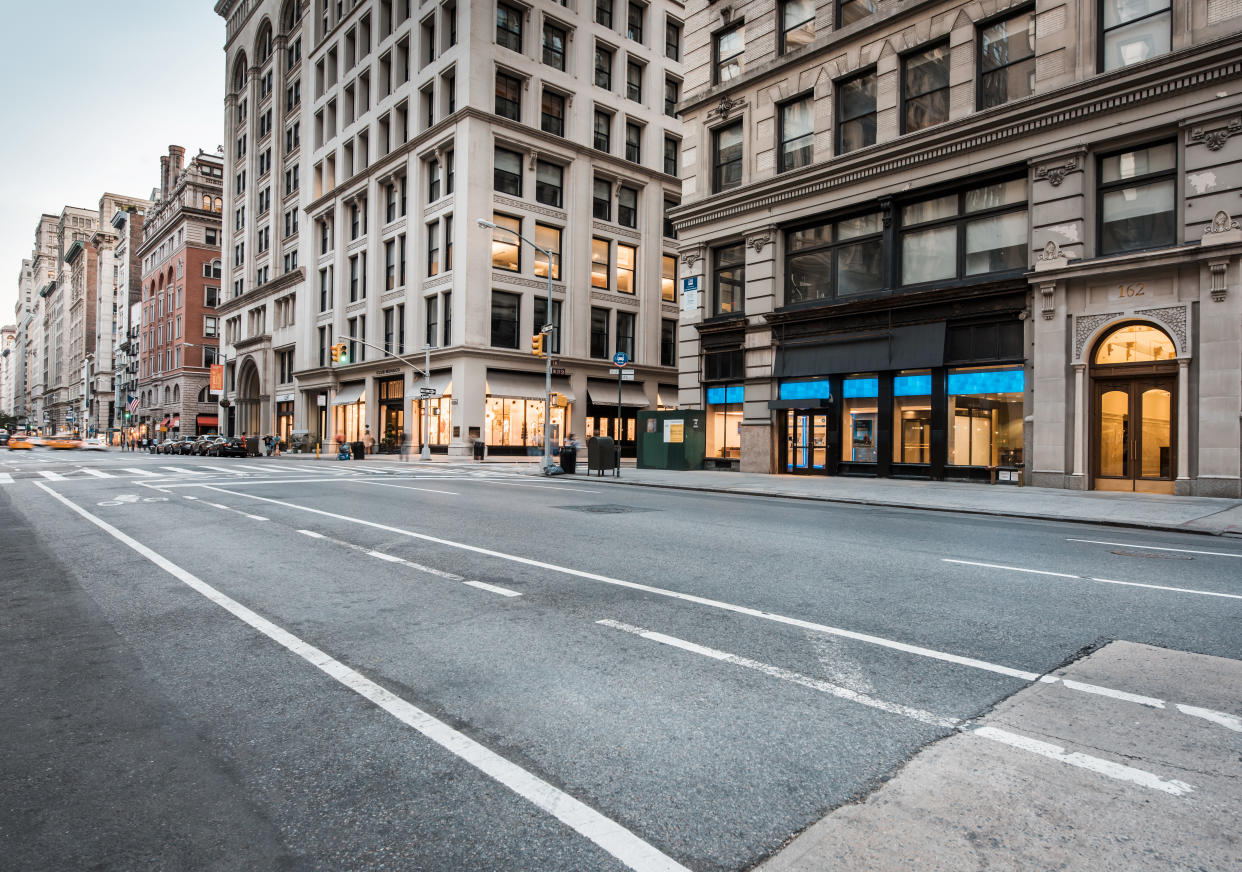People are being told to 'shelter in place' to combat the coronavirus. What does that mean?

Health officials in multiple cities are issuing “shelter in place” orders — rare safety measures taken during public health crises — to contain the coronavirus, which has infected 6,000 people nationally and 200,000 globally.
On Tuesday, Mayor Bill de Blasio of New York City said in a press conference that residents should prepare for the possibility of such an order, which could potentially confine people to inside their homes unless leaving for basic necessities (food) or to perform essential services (medical care). New Yorkers will be notified of that “very very difficult decision” in 48 hours, said de Blasio.
Shelter in place orders have also been issued in seven California counties: Santa Clara, San Mateo, San Francisco, Marin, Santa Cruz, Contra Costa and Alameda, until April 7. Also, officials in California, Washington and New Jersey have instructed various recreational businesses to shut their doors, 37 states have closed their schools and the Centers for Disease Control and Prevention (CDC) advised that gatherings of 10 people be canceled.
New York City Mayor de Blasio says there are discussions occurring regarding a potential shelter-in-place order for the city; says he expects to make a decision in the next 48 hours. pic.twitter.com/bEyGXNVBPa
— MSNBC (@MSNBC) March 17, 2020
According to the CDC, shelter in place orders apply to emergencies such as pandemics or natural disasters during which people seek the closest shelter, (homes, cars) and remain in place until told otherwise. If people don’t comply, a punishment of imprisonment or fines can be applied.
“The term ‘shelter in place’ has a dramatic sound with connotations from the Cold War when people did duck-and-cover drills [ahead of nuclear attacks],” Jason Persoff, M.D., assistant director of emergency preparedness at UCHealth University of Colorado Hospital, tells Yahoo Lifestyle.
What it means for the coronavirus: “Try and function normally while remaining mostly at home,” he says, adding that those over the age of 65 and who have conditions that lead to immunosuppression such as diabetes, hypertension or cancer should particularly comply for their safety. In fact, the order officializes what many are already doing: holing up indoors except when seeking food or medicine.
“Many believe they can’t go outside which is not correct,” says Persoff. “You just can’t travel freely without good reason.” Walking pets, strolling, biking or hiking is generally fine as long as social-distancing protocol is followed (i.e. remaining six-feet apart from others). Meeting up with your running club is not.
Persoff says the people should continue visiting grocery stores, however wearing latex gloves isn’t that necessary. “Unless you’re removing them using a medical procedure called “Doffing” — which is how doctors and nurses are trained — they can provide a false sense of security and even contaminate.”
For the latest news on the evolving coronavirus outbreak, follow along here. According to experts, people over 60 and those who are immunocompromised continue to be the most at risk. If you have questions, please reference the CDC and WHO’s resource guides.
One thing parents need to keep in mind during the coronavirus pandemic: Taking care of ourselves
How the coronavirus hurts movie theaters: 'Some will shutter and never re-open'
Coronavirus and immunocompromised kids: 'Where does this leave children like mine?'
Want daily pop culture news delivered to your inbox? Sign up here for Yahoo Entertainment & Lifestyle's newsletter.
